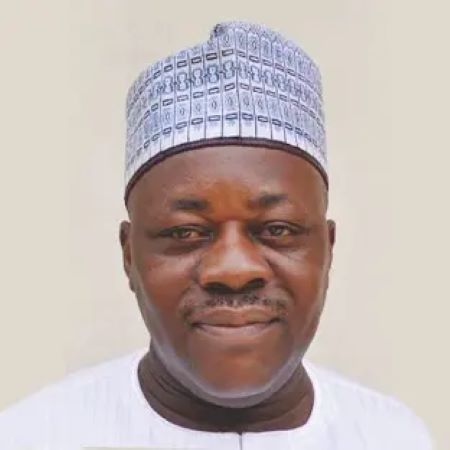Last week, Nigeria lost a remarkable progressive reformer, the former Inspector General of Police, Dr. Solomon Arase. He embodied what a Nigerian police officer should be—a visionary leader who dedicated his life to advancing the long-overdue reforms of the Nigeria Police Force.
Arase was deeply committed to promoting citizen-focused policing and embedding respect for human rights into the culture of the force. He pioneered the adoption of intelligence-led policing, a strategy designed to uphold the constitutional principle of presumption of innocence. Through this, he sought to humanise policing in Nigeria.
After his tenure as IGP, Arase continued to apply his expertise as Chairman of the Police Service Commission, where he championed further reforms and modernization. He worked closely with civil society and human rights groups, building bridges and constantly stressing that reforming the police is a shared responsibility. His central message was that the police must be transformed into a friend and protector of citizens—a task that remains unfinished.
I first met Dr. Arase at an Institute of Security Studies seminar in 2017, themed Unity in Diversity: Security and National Development. In his contribution, he lamented the absence of a comprehensive threat analysis to peaceful coexistence and called for proactive responses that would address threats before they overwhelmed the country.
He openly admitted that the Nigerian Police Force was dysfunctional and unfit for purpose. He recalled the extensive recommendations of the Danmadami Police Reform Committee, which the government accepted in its White Paper but never implemented.
Arase argued that the IGP’s role should focus on setting standards and ensuring quality control, while operational policing should be decentralised to the states. He highlighted a core problem: most of the operational budget was consumed at the IGP’s office, leaving little for state operations. Aware of this, state governors often step in with massive financial support just to keep minimal police functions running. This, he insisted, made the police structurally incapable of performing its core duties.
Over the past few decades, Nigeria has faced serious security challenges, from Boko Haram insurgents to secessionists, Niger Delta militants and bandit terrorists. In this context, Nigeria urgently needs a functional police force—and the starting point is tackling corruption within it.
The police are expected to prevent trouble before it escalates, closely monitoring developments within society and investigating criminal activities. However, their capacity for intelligence and investigation was severely weakened after parts of the investigation department were carved out to form the National Security Organisation and later the State Security Service. The unchecked operations of kidnappers on certain roads for years illustrate this glaring gap.
I also served on the Judicial Commission of Inquiry into the clash between the Nigerian Army and the Islamic Movement in Nigeria (IMN). We heard numerous complaints about the police’s helplessness and neglect in monitoring the group.
For instance, the Gyallesu community in Zaria submitted a memorandum detailing how the police consistently failed to arrest IMN members despite cases of murder, arson, and destruction of property. Instead, complainants were often told to defend themselves.
The police were fully aware of IMN’s excesses, including murders, but failed to act. They admitted that the group defied authority, ignored police invitations, and resisted arrest, yet took no steps to protect innocent citizens. They even avoided confronting IMN members during blatant violations such as road blockades or illegal occupation of public spaces. Inevitably, the army was called in to manage law-and-order situations that the police could not—or were not empowered—to handle.
The truth is that Nigeria has not been properly policed for decades, and the evidence is all around us. Both rural and urban areas are under constant siege from terrorists, criminals, kidnappers, and bandits. No one is safe—not even a presidential convoy, as shown during an attack under President Buhari. Now, as insecurity creeps into Abuja, members of the ruling elite are beginning to feel the vulnerability ordinary citizens have endured for years.
One fundamental issue is manpower. The police force has not expanded in line with population growth. Out of Nigeria’s 350,000 police officers, about 150,000 are on VIP guard duty, often arranged through private payments. These VIPs include politicians, businesspeople, and anyone wealthy enough to pay. When combined with officers on official guard duty, very few are left for core policing functions.
This shortfall explains why the army is deployed across virtually all states, performing duties that should ordinarily fall under the police. Efforts since 1999 to increase police numbers have failed due to corruption, turf wars between the Police Force and the Police Service Commission, and disputes over the Ministry of Police Affairs.
Globally, effective policing relies on well-equipped and resourced local police stations. Unfortunately, in Nigeria, resources rarely reach the station level, as most of the budget is consumed at national, zonal, and state headquarters.
Building a functional police force in Nigeria is not impossible. The reform roadmap already exists, with its details well understood. What has been missing is the political will to implement it. The greatest obstacle remains powerful interest groups who view an effective, professional police force as a threat to their personal interests.


